What Makes Me Say No to VC | XMind Founder Brian Sun
Dec 3, 2018
What Makes Me Say No to VC | XMind Founder Brian Sun
Dec 3, 2018
If we start up a business by aiming for doing it for the rest of our lives, if we make every decision by thinking of doing it for the rest of our lives, if we deal with every tiny little thing around us by means of doing it for the rest of our lives, we shall live in peace and freedom for the rest of our lives.
Brian Sun, Founder and CEO of XMind, Ltd.
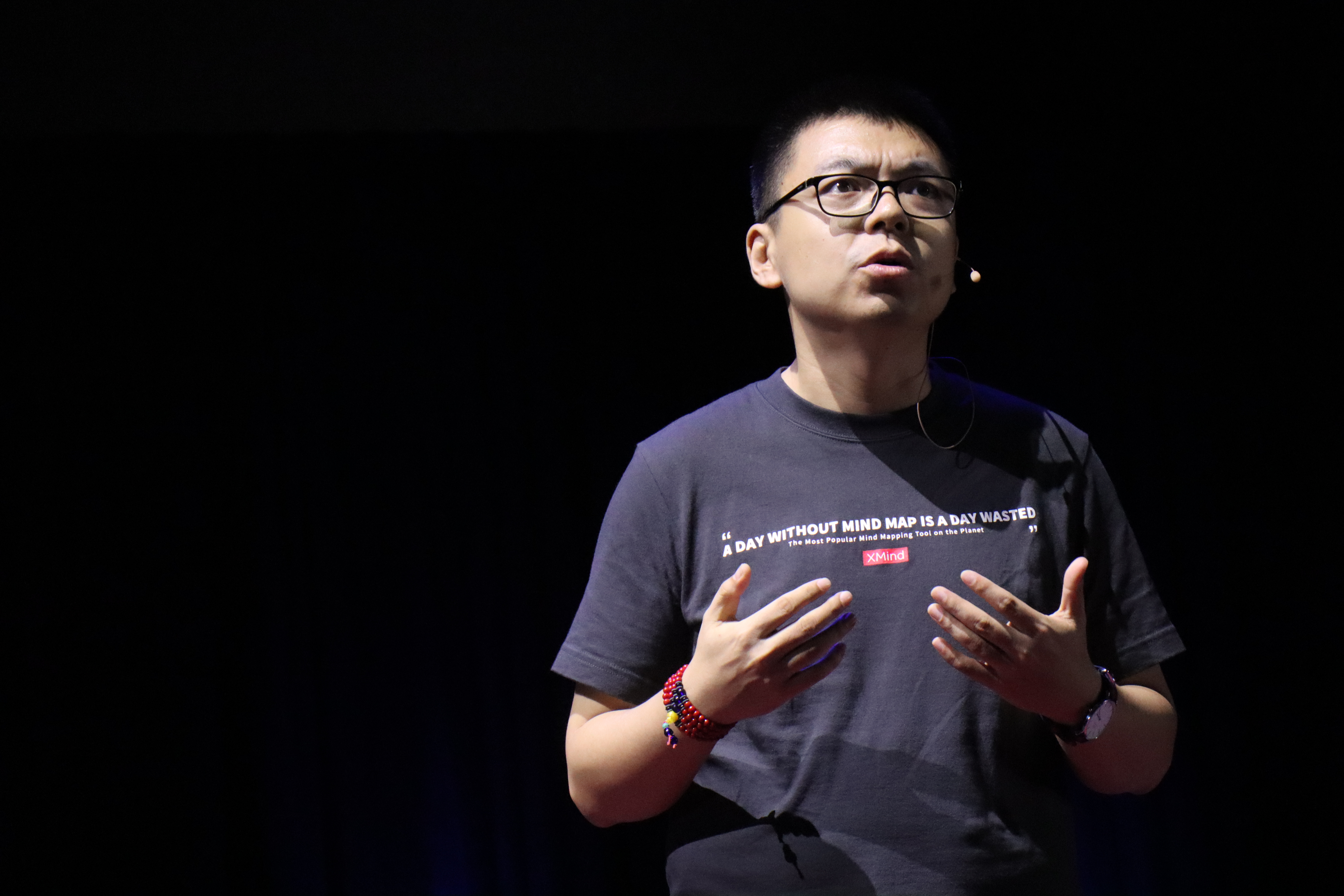 Brian Sun, Founder and CEO of XMind, took the stage of the TEDxFutian 2018 Annual Conference in August of this year. As the representative of #Outlier# in the Internet field, he shared distinctive ways of integrating Buddha wisdom originated 2,500 years ago into modern life and work management.
Click the YouTube video to see what motivates Brian to stick to mind mapping for the rest of his life.
Brian Sun, Founder and CEO of XMind, took the stage of the TEDxFutian 2018 Annual Conference in August of this year. As the representative of #Outlier# in the Internet field, he shared distinctive ways of integrating Buddha wisdom originated 2,500 years ago into modern life and work management.
Click the YouTube video to see what motivates Brian to stick to mind mapping for the rest of his life.
About TEDxFutian
In the spirit of ideas worth spreading, TEDx is a program of local, self-organized events that bring people together to share a TED-like experience. At a TEDx event, TEDTalks video and live speakers combine to spark in-depth discussion and connection in a small group. These local, self-organized events are TEDx, where x = independently organized TED event. The TED Conference provides general guidance for the TEDx program, but individual TEDx events are self-organized (subject to specific rules and regulations).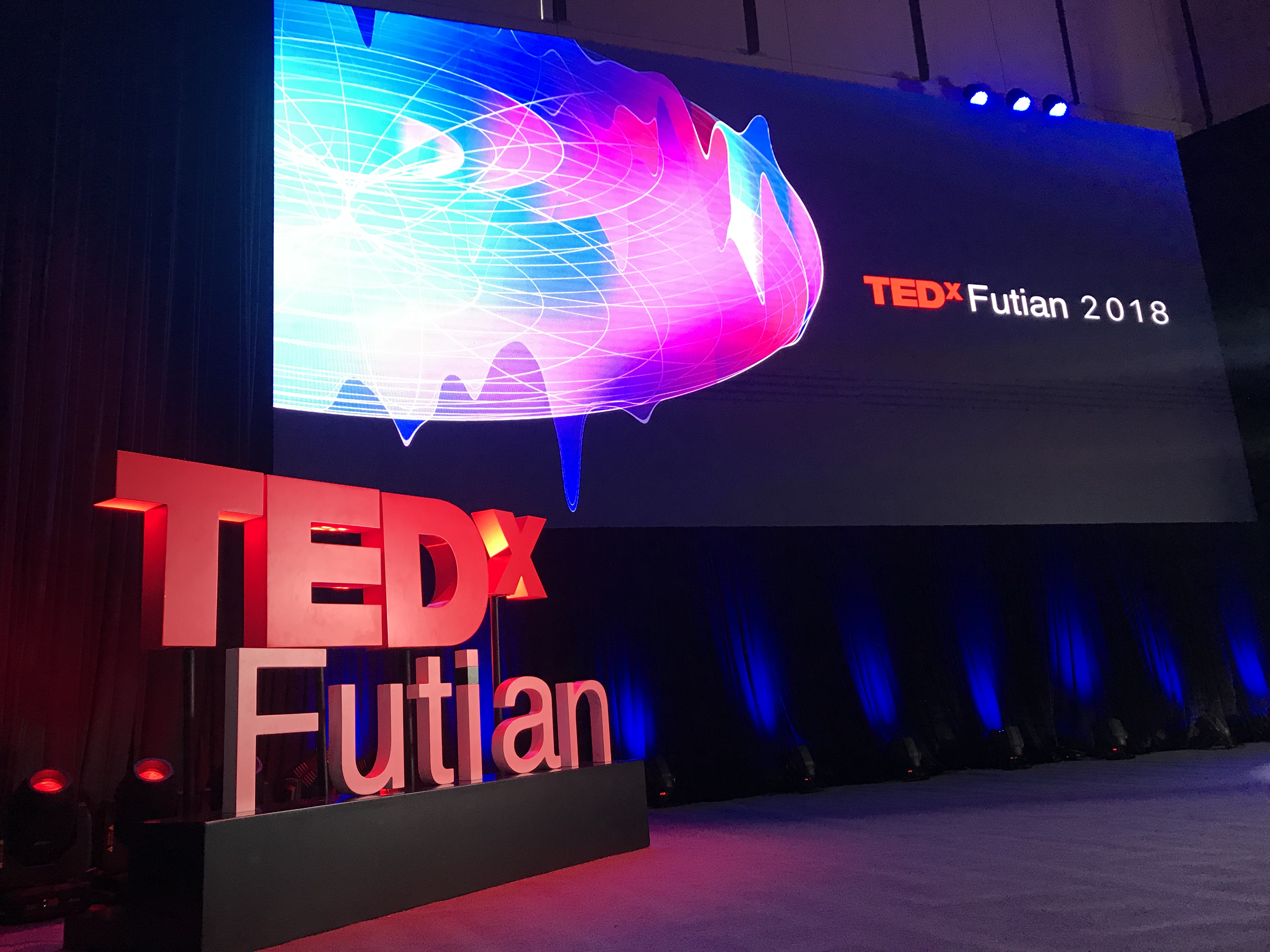
What makes me say no to VC (Full Transcript)
Brian Sun, 2018 at TEDxFutian
I love it, and I started a business for it
The first time for Chinese people to get to know Mind Mapping was the appearance of a book called The Learning Revolution. The word Mind Map was then translated into Chinese as Nao Tu (a picture of the brain), not Si Wei Dao Tu as we call it today. That was the year when I was in middle school. As I walked into the bookstore and opened the book The Learning Revolution, I fell in love with those mind maps at the very first glance. From then on, most of my class notes in school were in the form of mind maps. To this day, I still keep these class notes like history, mathematics, and physics.
Hand-drawn mind maps fall short in many cases. They’re limited to the size of the paper, and can’t be easily modified. They are not reorganizable, and not searchable, of course. After I graduated from college, I happened to know a mind mapping app made by a German company, called MindManager. The software covers all shortages of hand-drawn mind maps. Then I realized that mind mapping software could help everyone clarify their minds and develop creativity. It is something I love. It is what I think is right. It is beneficial to society. Moreover, it’s also profitable. So, why not to start up a business?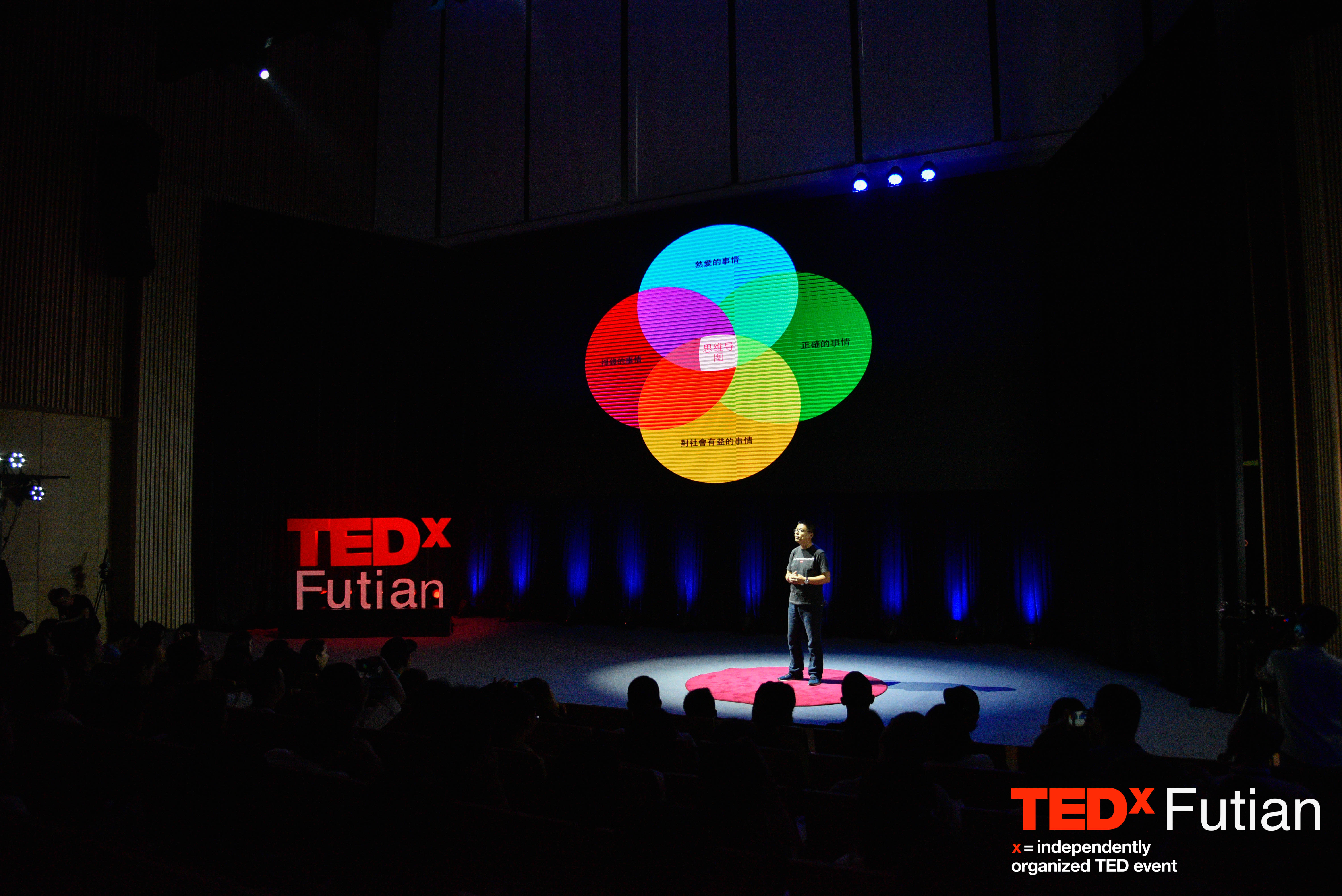 Twelve years ago, we started up a company making mind mapping software, called XMind. At the very beginning of the start-up, we came to an agreement that, since we all consider mind mapping software as something meaningful, we shall do it for the rest of our lives. It is an attitude to do something for the rest of our lives. It's possible that we can’t make it to the end of our lives. Maybe the whole market is a flash in the pan. Perhaps we can’t even support ourselves. So be it. All that we care is the attitude of spending the rest of our lives on dealing with every tiny little thing around us.
Twelve years ago, we started up a company making mind mapping software, called XMind. At the very beginning of the start-up, we came to an agreement that, since we all consider mind mapping software as something meaningful, we shall do it for the rest of our lives. It is an attitude to do something for the rest of our lives. It's possible that we can’t make it to the end of our lives. Maybe the whole market is a flash in the pan. Perhaps we can’t even support ourselves. So be it. All that we care is the attitude of spending the rest of our lives on dealing with every tiny little thing around us.
When you think this way, you also look from a completely different perspective. Also, I’m going to explain it with a few examples. First, dreams are different. What is my goal? My goal is to make mind mapping software available to every single person. When we stepped into this market, it was severely polarized. On the one hand, there was MindManager, at an extremely high price, irrationally. On the other hand, there was FreeMind, open source, but with limited functionalities. On the contrary, our product, XMind, is a full-featured mind mapping tool. I could have made its price as high as MindManager, or at least a half of it. It would have sold anyway. However, we did not. We, unexpectedly, chose a business model combining Free and Premium, as known as Freemium. Even speaking of freemium, there were still many options. We chose to make most of the product free of charge. Please notice that it’s not only open for a few basic features, but also the most of all functions. All the core features are offered for free, so that only 20% of our users, in 20% of the usage time, hit some premium features. Isn’t it counterintuitive? Why don't you let users pay for features that are exhausting to design and develop? Does it mean that your developers spend most of their time working for those free features? The answer is YES. Why? It is designed to let more people can have a chance to use mind mapping software. As we think mind mapping software is beneficial to us, we also want it to be helpful to everyone else. I know what you might ask. Can we make money this way? Sure we can. Also, it can support the whole team. The bigger our user-base is, then, the better the product sells, and the more we earn. Meanwhile, the free part of the app is so sufficient and compelling, that its user-base has been continuously growing. In 2009, we established a foothold in the US and European market. In 2012, we had surpassed all of our competitors and become The Most Popular Mind Mapping Software On The Planet. So today we’re still leading the market. It means we can keep doing this for the rest of our lives.
I want to make the right products... for my whole life
At that moment, investors came one after another. But we declined all investments, as well as all IPO plans. We want to be small yet elegant. In 2013, we were awarded as one of Red Herring Asia Top 100 Winners. At the ceremony, many investors approached me and asked if we want any investment. My answer was, “Sorry, but we don't need money.” They were surprised at how the hell a man in the world does not need money, “Are you kidding me?” The best practice of the business of the current era is nothing but making a concept. Then turn it into a product that makes money, and sell it to someone else while it’s still making money. Then, the founders retire or dive into real estate. The whole industry is impetuous.If you keep changing, you lose the game
I have a friend. He’s about the same age as me and started up his own business at about the same time as me. But he still has nothing today. If you ask him about his dream, he will tell you that his vision is to earn a hundred million dollars overnight. Because of such an idea of nothing but money, he has been continuously changing directions over these many years. Rather than making the right products, he prefers whatever popular or trending. For me, I love mind mapping, and I'd like to stick to this for the rest of my life. Such focus gave me the courage to say NO to seductions. Such attention gave me confidence so that I could dive into the details and design. We’ve been working on XMind for 12 years. And I guarantee that you can find 12 year-long XMind users out there. Believe it or not? This year we organized three offline workshops in the United States, Australia, and Europe. At these workshops, we witnessed real 12-year XMind users. What surprised us is that the features these users love the most are precisely the ones we love the most as well, and also the ones we polished with the most attention. That was amazing. It’s like an old friend we made 12 years ago but get in contact with today.If you grasp it, you lose it
There’s another phenomenon in my company -- No Overtime. In the IT industry of China, it’s hard to find a company that gets off works on time, even harder than finding a polar bear in Shenzhen. Why do these companies work overtime? That’s because their philosophy is to do whatever others are doing. And they must do it faster, must do it earlier, and must do even more. You cannot, but work overtime. If you have this idea in mind, then you are fighting or also battling, for basically nothing. No matter how many employees you have, no matter how much money you have, no matter you have one product or a product portfolio, you are bound to work overtime, if you have this idea in mind. In such companies, work shifts never end.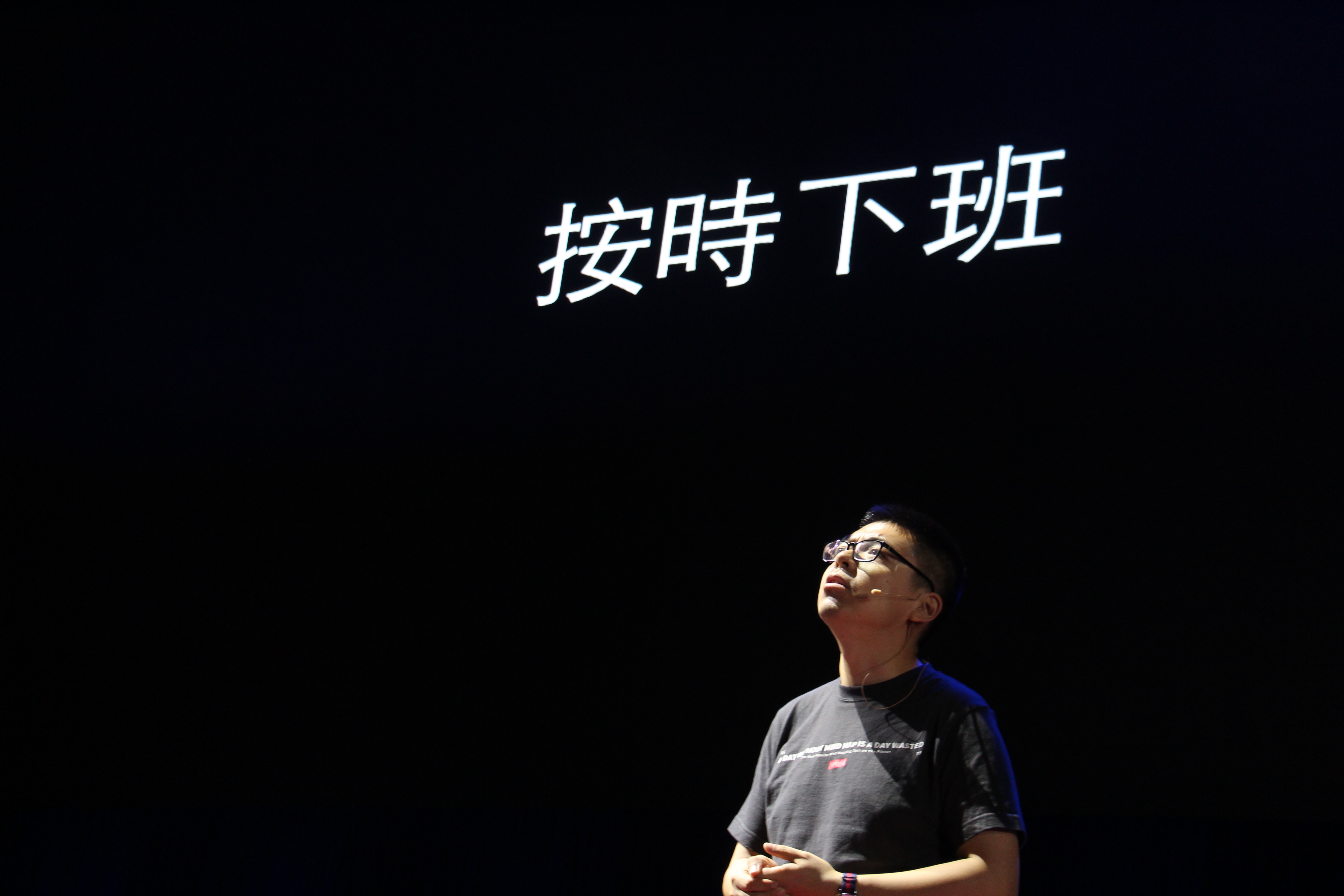 To better explain this, I’d like to introduce two terms from Buddhism, Grasping and Not Grasping. The phrase Must Do as I just mentioned is an expression of grasping. It is a toxic methodology. Competitors make plans by pursuing each other, causing a large amount of duplicated work, wasting resources, wasting energy, wasting time, and wasting source code. Grasping may cause even more significant harm. Pursuing others’ features will quickly exceed the team’s execution capability, making the product a total mess, which nobody wants to use. It happens every single day in our industry. So, as said in the book Getting Real, users wish to “half a product,” rather than “a half-assed product.”
To better explain this, I’d like to introduce two terms from Buddhism, Grasping and Not Grasping. The phrase Must Do as I just mentioned is an expression of grasping. It is a toxic methodology. Competitors make plans by pursuing each other, causing a large amount of duplicated work, wasting resources, wasting energy, wasting time, and wasting source code. Grasping may cause even more significant harm. Pursuing others’ features will quickly exceed the team’s execution capability, making the product a total mess, which nobody wants to use. It happens every single day in our industry. So, as said in the book Getting Real, users wish to “half a product,” rather than “a half-assed product.”
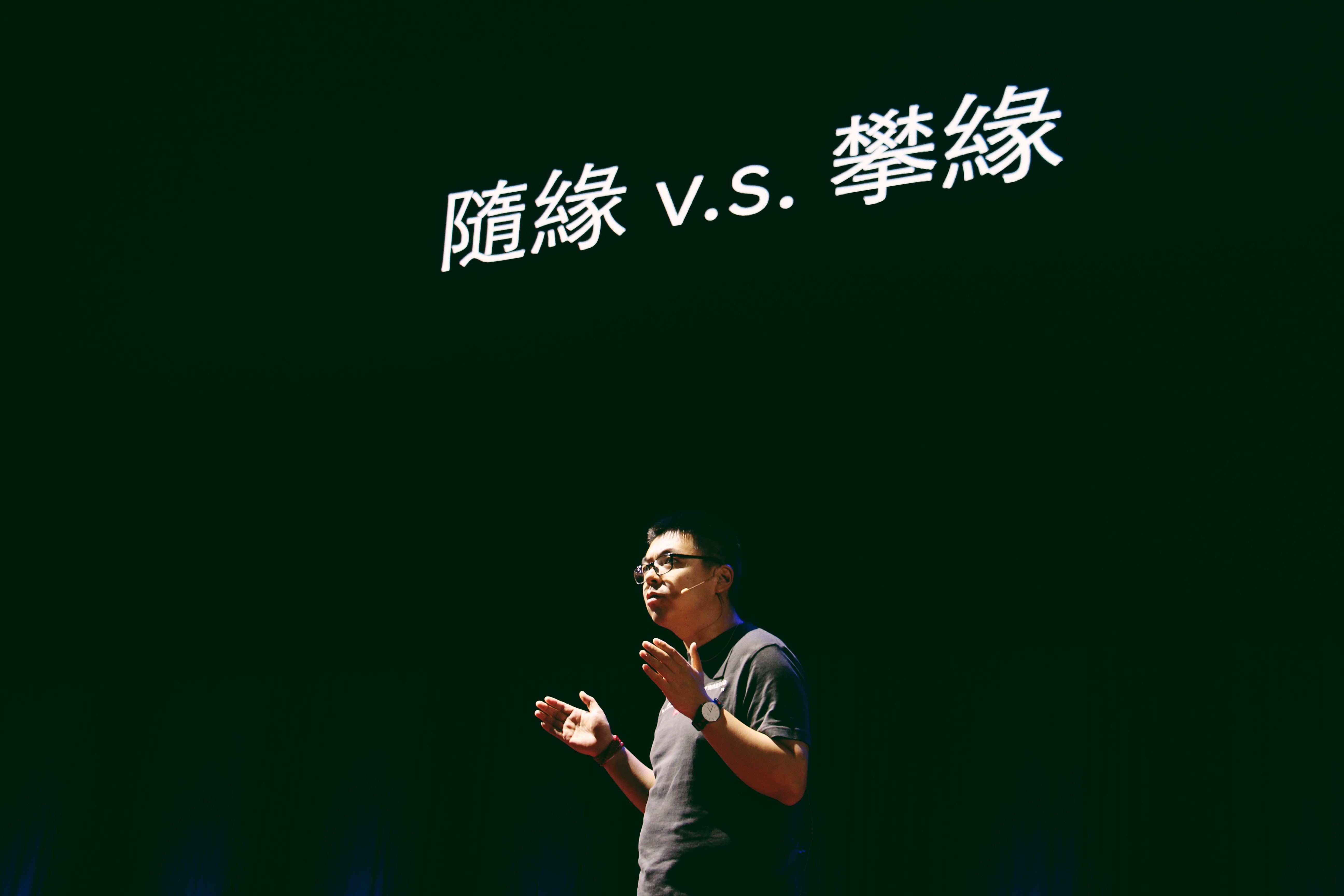
We do the real things, and we welcome big fish
Then, how do we get our work finished on time? Is it because we care more about sleeping time? Is it because we practice a healthy lifestyle? Or is it because we have fewer meetings? No, no, no, we have no fewer meetings than others. It is because, in a company like ours, work gets done. It’s because our goal is to do less than others, slower than others, and later than others. But to polish our product more carefully than any other for the rest of our lives. You may say that in your market, there are no big fish. No Microsoft. No Apple. No Google. That’s why you don’t have to work overtime. I disagree with that. It would be highly appreciated to have big companies in this market because that would fix the issue for us that a large number of people have no idea of this kind of software. So, the more companies entering this market, the more people getting to know mind mapping, and the more money we can make. So I would regard big companies as friends rather than competitors.We have a different focus than pleasing the investors
I just mentioned three differences. Since our dreams are meant for the rest of our lives, we have a different business model. We first make more people get to know mind mapping software. Secondly, we have a different focus, to put our heart and soul into our products while others are struggling for investments. And the third, we have a different culture, to allow us to work 35 hours a week without bleeding my employees dry because we have a long way to go together. Does this model work for any company? I think so! The reason why Apple becomes Apple is that they insist on the integrity of software and hardware. That’s what they thought was right, and what they were going to do for the rest of their lives. Even though it’s been ten years since they lost their founding leader, the whole company remains firmly on this path. How I hope we could do so as well!
Mr. Buffett said that “If you aren’t thinking about owning a stock for ten years, don’t even think about owning it for ten minutes.” We all should make our products in this spirit. The Basecamp team posted on their website that they will support Basecamp “until the end of the Internet.” I love this idea so much!We pour our love onto XMind, and we receive love around the world
Are you aware of how powerful this kind of faith can be? A few days ago, I met a former classmate who came back from abroad. After a short greeting, she asked me what I’m currently working on. I said that I make mind mapping software. She might instantly feel like I would start to promote my product, and, to stop my mouth, she said, “Oh, mind mapping software. I know that. But I use only XMind.” Then she swung her hair like this.In the next 20 minutes, she kept on promoting to me all the features and advantages of XMind. Before I left, I said, “Thank you. I’ve learned a lot today.”
There’s another story. A colleague of mine was once taking the train in the U.S. and picked up by a stranger, not because she looks pretty, but because she was carrying a bag with XMind logo printed. Imagine that a small team receives respect everywhere around the world. That's amazing.We aim for happiness for long-term, even beyond the lifetime
The three points I mentioned today are the three reasons for joy. The first, happy for giving out. The second, happy for less demand. The third, happy for a friendly office atmosphere. So I just said, “We simply want to be small yet elegant.”
Now you might ask, “Is it hard to follow your heart?” Yes, very much. There are not only obstacles but also endless seductions. Sometimes I have to seek a higher level of wisdom to help me think out of the box.
One of my favorite books is What Makes You Not a Buddhist, written by a great Buddhist master, who happens to be a movie director as well. Many of his documentary films have been awarded multiple rewards. Every time I encounter a dilemma, this book enlightens me with a higher level of wisdom. When I only see the numbers, it helps me step out and see my products. When I only see my products, it helps me see my heart. If I only know this life, it even teaches me to think beyond lifetimes. I strongly recommend this book to you.
Someone may argue that seeing through lives is old-man stuff, and young men can only care about benefits in the short term. I strongly disagree with that. That’s because they haven’t tried and seen the benefits. If we start up a business by aiming for doing it for the rest of our lives, if we make every decision by thinking of doing it for the rest of our lives, we shall live in peace and freedom for the rest of our lives. Thank you.
Try Xmind Free

